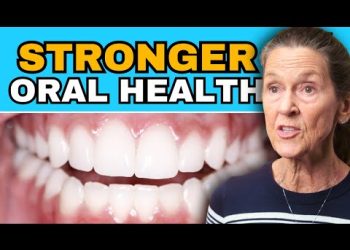Understanding Microplastics in Your Brain
Today, we’re going to explore a pressing health issue: how to detoxify your brain from microplastics. It’s alarming to learn that the brain accumulates more microplastics than other organs, with studies showing it gathers 7 to 30 times more microplastics than the liver or kidneys. Addressing this is crucial as we dive into methods to rid your brain of these harmful materials.
Beyond Microplastics: The Threat of Forever Chemicals
In addition to microplastics, our bodies contend with “forever chemicals.” These substances bind with proteins in our blood, leading to adverse health effects as they bioaccumulate over time. Taking steps now to mitigate these chemicals can help avert significant health issues in the future.
The Recycling Myth
First, it’s important to note the misconceptions surrounding plastic recycling. Despite the recycling symbols that suggest otherwise, only 9% of plastics are successfully recycled. Most plastics are either incinerated or sink to the ocean’s depths, continuing the cycle of pollution.
Emerging Solutions: Microbes and Enzymes
While technology is advancing with innovations like plastic-eating microbes and enzymes, these are not yet widely available. Until then, we must focus on two primary actions: avoiding plastic use where possible and employing methods to detoxify our bodies.
The Brain’s Cleansing Mechanism
Our brain has a unique lymphatic system resembling a dishwasher that aids in cleaning out debris. This system is most effective during deep sleep, highlighting the importance of quality rest in detoxifying your brain.
Inducing Autophagy for Detox
To combat toxins, inducing autophagy, where the body cleans out damaged cells, is beneficial. Fasting for at least 18 hours is effective in triggering significant levels of autophagy, helping your body manage oxidative stress better.
Nutrition and Detoxification
Your diet plays a role in detoxification. Consuming foods rich in sulfur, such as garlic, onions, and cruciferous vegetables, can boost your body’s antioxidant systems. Additionally, remedies like NAC and milk thistle are recommended.
The Importance of Filtered Water
Removing plastics and forever chemicals starts with the water you drink. If you have city water, invest in a high-quality water filter or a whole-house filtration unit to reduce exposure to these chemicals.
Reducing Plastic in Daily Habits
Examine your daily routines: replace plastic cutting boards with wooden ones, avoid dishwasher pods containing plastic, and switch to biodegradable coffee filters. Even sea salt should come from ancient seabeds rather than the ocean to avoid microplastic contamination.
Long-Term Health Benefits
Transitioning away from products that contribute to microplastic contamination will prevent numerous future health issues. While modern medicine focuses on treatment through screenings, true prevention begins with reducing harmful exposures. Start now to make a significant impact on your well-being.











